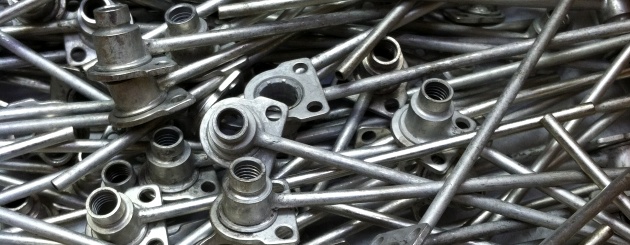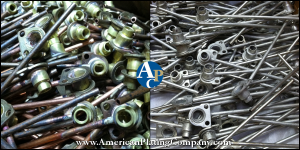Benefits of Tin Plating
What is Tin?
Tin is a silver-white metal that is soft, ductile and malleable. Due to this flexibility, tin can be molded and stretched into a variety of shapes without cracking. Tin is also considered to be non-toxic, conductive and resistant to corrosion.These physical attributes make the use of tin plating very prevalent in the food processing, electronics and shipping industries. In addition, there are several other features that make tin an attractive option for industrial manufactures including:
What are the Benefits of Tin Plating?
The everyday individual, like me, would find very little, if any value in having something tin plated, and yet, for industrial manufacturers, tin contains several traits that make it an invaluable commodity. Some of those traits are as follows:
Cost:
When compared to other metals and the plating processes involved, tin is significantly less expensive. Most industrial applications that use tin plated metals are not using this metal to create something that is eye-catching, so why spend a lot of money on something that will probably never be seen?
Shielding:
Many manufacturers of large electrical components use tin as a shield for the metals that lie beneath the plated layer. Copper, for instance has a natural tendency to oxidize and erode when exposed to the environment. A thin layer of tin on the surface can inhibit oxidation and extend the life expectancy of these large components.
Clean Contact:
Tin does more than just shield other metals. As a soft metal it also provides a good, clean, low constriction-resistance contact surface. In other words, Tin creates an optimal surface for conducting electrical currents.
Next time you need something plated in tin, nickel, copper, brass, silver or even gold, give American Plating Company a call at (314) 776-0542. At American Plating Company, 100% quality and customer satisfaction are all part of who we are.


